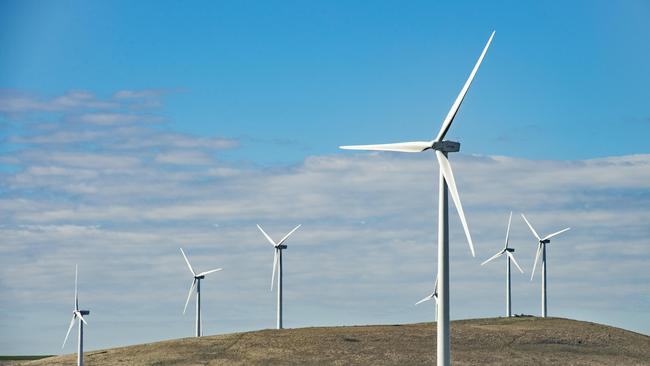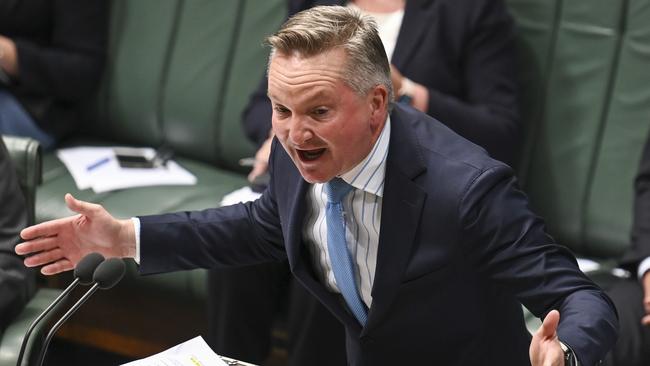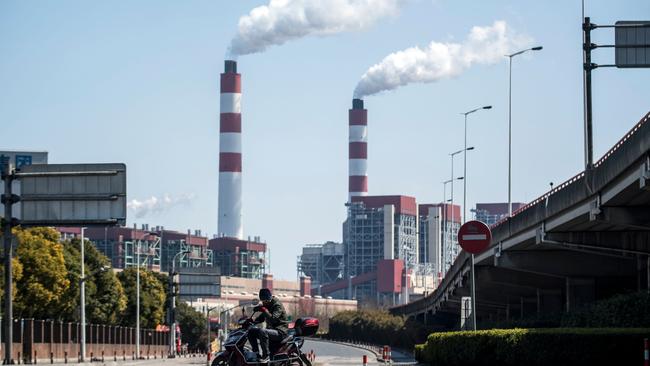
Projects are delayed and over budget and private companies are holding back on investments because they can’t compete with a government determined to pick winners.
The promised investment certainty for business in Labor’s legislated emissions reduction target has proved to be a mirage. Business wants government to stay in its lane and do the heavy lifting on a rollout of $20bn worth of transmission lines that nobody wants in their own back yard.
For Mr Albanese, the verdict from one institutional investor quoted by Infrastructure Partnerships Australia says it all. “I’ve not met a single person in the ecosystem that believes there is any possibility of meeting the 2030 target. It’s mathematically impossible today – with the current framework for approvals, construction costs and timelines, the procurement methods,” they said.
Meanwhile, inflation, higher interest rates, reliability issues and environmental concerns are pulling the plug on offshore wind internationally. Billions of dollars worth of investments have been scuttled in North America and the UK because they are no longer economic. The same companies want the Albanese government to relax local content rules and set state and federal targets.
At home, a new report shows green investments are still at the top of the list, but four out of 10 infrastructure investors are not prepared to risk money in areas where government wants to be a player rather than just set the rules. The government’s favoured hydrogen revolution has been put at the end of their infrastructure investment wish list, together with nuclear.

A push by government to renationalise parts of the energy sector will only make things worse.
Billionaire Andrew Forrest has packed his bags on a planned renewable energy zone in the Pilbara, which was supposed to make his iron ore operations carbon-neutral and redirected his attention to the Biden government’s subsidy-laden Inflation Reduction Act in the US.
Meanwhile, Chris Bowen is planning a new era of tariff protectionism via a carbon border adjustment scheme as the low emissions future is extended beyond energy to include agriculture, industry and housing.
New tariffs are designed to protect industry from competition as they transition to a low emissions future using technologies that do not yet exist. Bowen says the future will be built on “emissions product standards, public funding and multinational initiatives”.
The real issue was emphasised on Tuesday by the Australian Energy Market Operator, which warned of possible “reserve shortfalls in multiple regions” over an expected hot summer.
It said there was potential for unplanned electricity/gas plant outages to degrade system reliability in all regions. It’s too late to change the weather.

Power magazine reports China will give coal-fired power plants a guaranteed payment for every MW of capacity to ensure a stable power supply across the country. Chinese officials have repeatedly said the country needs to expand its coal-fired power generation, at least for another few years, due to the variability of power output from renewables.
There is bad news on nuclear, as well. NuScale, the US company most advanced in the pursuit of small-scale modular reactors has pulled the pin on its one contract because of rising prices. As the UN gets ready for its annual conference, this time in Dubai in December, decarbonisation is proving to be not easy anywhere.








The Albanese government is facing a long hot summer of disappointment on its climate change and energy ambition.